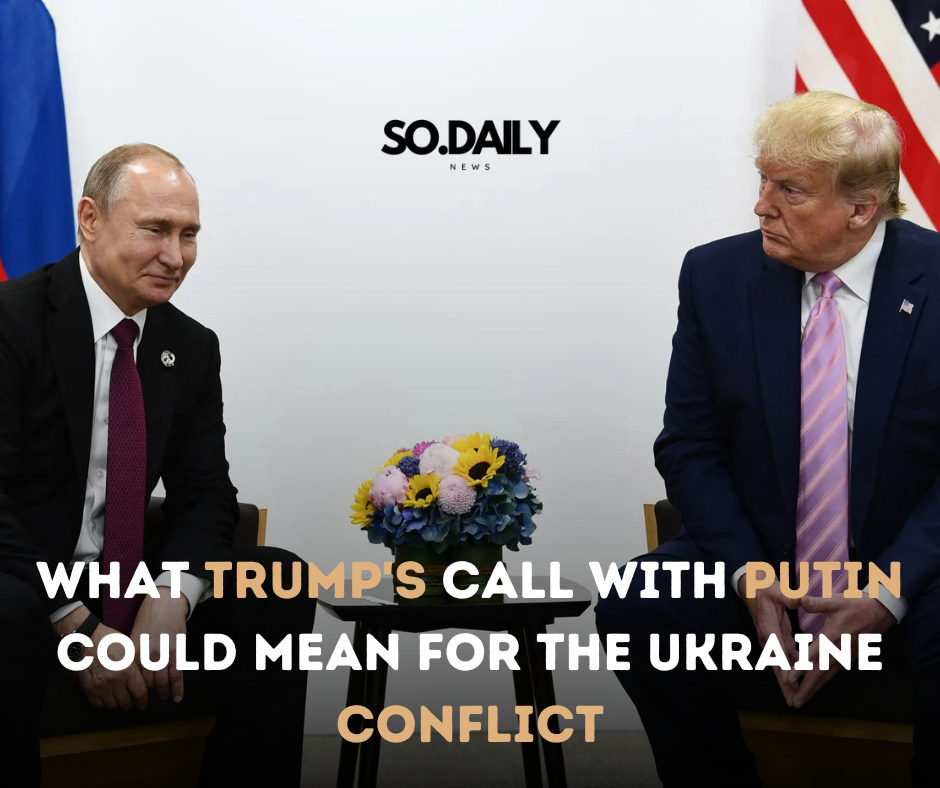As global tensions remain high, former President Donald Trump is set to hold a highly anticipated phone call with Russian President Vladimir Putin regarding the ongoing war in Ukraine. This conversation has sparked widespread speculation about what it could mean for U.S. foreign policy, the future of NATO, and the trajectory of the conflict itself.
With Ukraine continuing to fight against Russian aggression, world leaders and analysts are watching closely to see whether Trump’s approach will differ from the current administration’s stance and whether his conversation with Putin will lead to any major geopolitical shifts.
Trump’s Stance on Ukraine and Russia
Throughout his political career, Trump has had a complex and often controversial relationship with both Russia and Ukraine. As president, he was criticized for his warm rhetoric toward Putin, often questioning the effectiveness of NATO while simultaneously approving military aid to Ukraine. He also made headlines for attempting to withhold military assistance to Ukraine, leading to his first impeachment.
Since leaving office, Trump has continued to cast doubt on the effectiveness of U.S. support for Ukraine. He has suggested that European nations should shoulder more of the financial burden and has hinted at the possibility of negotiating a peace deal that may involve territorial concessions to Russia. His upcoming phone call with Putin will likely provide more clarity on his current position and his vision for the future of U.S. involvement in the war.
Key Topics Likely to Be Discussed
1. Potential Peace Negotiations
One of the biggest questions surrounding this phone call is whether Trump will attempt to position himself as a peacemaker in the conflict. During his presidential campaign, he has repeatedly claimed that he could “end the war in 24 hours” by negotiating directly with both Putin and Ukrainian President Volodymyr Zelensky.
While it remains unclear what a Trump-brokered deal would look like, many fear that his approach could involve pressuring Ukraine into making significant territorial concessions to Russia. Such an outcome would be deeply controversial, as it would effectively reward Putin for his invasion while undermining Ukraine’s sovereignty.
2. U.S. Military Aid to Ukraine
Under the current administration, the U.S. has provided Ukraine with billions of dollars in military and humanitarian assistance. However, Trump has expressed skepticism about continuing this level of support.
If his call with Putin signals a shift toward reducing or even halting U.S. aid, it could have dramatic consequences for Ukraine’s ability to continue its defense. A reduction in support from the U.S. could also weaken international resolve, potentially leading other Western nations to scale back their own commitments.
3. NATO’s Role and U.S. Commitments
Trump has long been critical of NATO, frequently accusing European allies of not paying their fair share for collective defense. His stance on NATO has raised concerns about whether he would continue to support the alliance if he were to return to the presidency.
Putin has repeatedly framed NATO as a threat to Russian security, using its expansion as one of the justifications for his invasion of Ukraine. If Trump’s phone call signals a willingness to weaken or distance the U.S. from NATO, it could embolden Russia and increase the risk of further aggression in Eastern Europe.
4. Sanctions and Economic Pressure on Russia
The U.S. and its allies have imposed heavy economic sanctions on Russia in response to the invasion of Ukraine. These sanctions have targeted Russian banks, energy exports, and high-ranking government officials, aiming to cripple the country’s ability to finance the war.
Trump has been critical of some of these sanctions in the past, arguing that they hurt global markets and strain diplomatic relations. If his call with Putin suggests a willingness to ease economic pressure on Russia, it could lead to a shift in global financial markets and reduce the leverage that Western nations have over Moscow.
What This Call Could Mean for Ukraine’s Future
The outcome of this conversation could have serious implications for Ukraine’s war effort and its long-term prospects for peace. If Trump signals a willingness to negotiate with Putin on terms that favor Russia, it could undermine Ukraine’s resolve and lead to increased pressure on Zelensky to accept a deal that may not align with his country’s interests.
On the other hand, if Trump takes a harder stance against Russia than expected, it could force Putin to reconsider his strategy. However, given Trump’s past statements and actions, many analysts believe he is more likely to seek a diplomatic solution that leans toward de-escalation rather than escalation.
The Global Reaction and Political Fallout
Trump’s conversation with Putin will not only impact U.S.-Russia relations but will also be closely scrutinized by allies and adversaries worldwide. European leaders will be watching to see whether Trump remains committed to supporting Ukraine or if he signals a potential shift away from the current U.S. stance.
Additionally, this phone call could have major domestic political ramifications. With the 2024 presidential election approaching, Trump’s approach to foreign policy—particularly regarding Russia and Ukraine—will be a critical issue for voters. His supporters may see his efforts as a pragmatic attempt to end the war and reduce U.S. involvement, while his critics will argue that he is too willing to accommodate Putin’s demands at the expense of American interests and global security.
Conclusion: A Pivotal Moment in U.S.-Russia Relations
Trump’s phone call with Putin comes at a time when the world is grappling with the long-term consequences of the war in Ukraine. Whether this conversation leads to a potential breakthrough in negotiations or further controversy remains to be seen.
What is certain, however, is that this discussion will provide important insights into Trump’s foreign policy approach and how he envisions America’s role in global conflicts. For Ukraine, NATO, and the broader international community, the stakes could not be higher.
